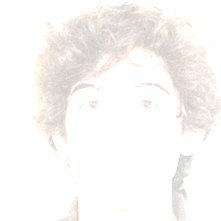After one of the suspects of the terrorist attack in Boston, 19 year-old Chechen-American Dzhokhar Tsarnaev was arrested, President Barack Obama asked a question that many Americans were asking, “Why did young men who grew up and studied here, as part of our communities and our country, resort to such violence?"
Certainly, more information is needed, and I cannot answer the president's question directly, but I could address it in some provocative ways. First, how accurate would it be to consider the Tsarnaev brothers as Americans? Would it be more correct to see their world outlook as a product of post-Soviet reality, into which they were born? Second, who are the modern extremists in Russia and what do they have in common with the Tsarnaev brothers?
The younger brother, Dzhokhar, received political asylum in the United States when he was 10 years old and went through the American system of education. He looks like an American. One of his classmates said, "He is as much American as I am." At the same time, he was very close to his family and apparently was under his older brother’s influence, while young Americans usually leave their families and develop a more individualistic style of life at that age.
Americans are acclimated to the images of “adult” terrorists who fight for a cause – the young ages of Tamerlan, 26, and Dzhokhar, 19, perplexed Americans. However, those ages are like that of insurgents in the North Caucasus today. The age of insurgents has been lowering over the last 20 years, as usually happens during prolonged wars.
The high level of education of the Tsarnaev brothers is another perplexing issue. They were not desperate about their futures – the older brother had a successful sporting career and the younger one was receiving a good American education. This is a new trend in the North Caucasus as well, when children of better-off people adopt extremist views and even become insurgents. The age, education, and, as a consequence, the motivation among insurgents has changed over the last decades. In the 1990s, the intelligentsia was the driving force of the discontent, including retired military specialists with nationalistic ideology and separatist attitudes. They witnessed the fall of the Soviet Union and vividly imagined that the same may happen to new and yet weak post-Soviet countries including Russia.
The 2000s witnessed insurgents with less “professional” education but who were however self-educated in Islam, which inspired them to fight for local and international jihad. They saw the rapid and wide spread of Islam in the North Caucasus and some kind of "messiah" ideals drove their actions. Today, the new insurgents of the 2010s are different from both. They grew up during the strong authoritarian regime of today’s Russia. They did not witness the breakup of the USSR. They cannot imagine the fall of the state the same way as the "separatists" of the 1990s can. With their good education levels, they cannot be inspired by superficial religious self-education. Rather, feelings of injustice form their motives and inspire them to hopeless and suicidal fights against the mighty state, which cannot be defeated. The romantic memory of the past two "heroic" decades of insurgency is another important motive.
Sufian Zhemukhov is a Visiting Fellow at the Institute for European, Russian and Eurasian Studies (IERES), George Washington University, blogging for PONARS Eurasia on the Caucasus.










